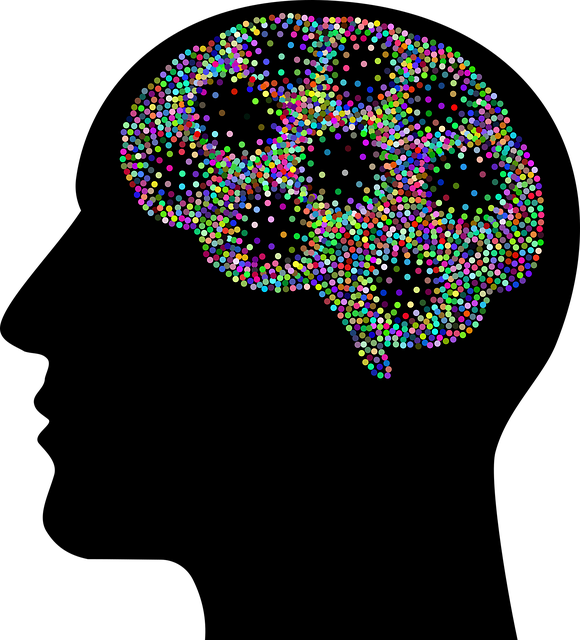Louisville Terminal Illness Therapy (LTIT) utilizes a multifaceted approach, combining data gathering from medical records, online platforms, and surveys with preprocessing techniques to clean complex information. This process identifies trends in mental health concerns like anxiety, depression, and stress, aiding in risk factor analysis and tailored interventions. By employing descriptive statistics, predictive modeling, and qualitative methods with cultural sensitivity, LTIT gains insights into terminal illness experiences, enabling personalized, effective care that addresses both mental and physical well-being. While navigating digital tools and privacy challenges, the therapy center strives for data-driven, inclusive, and compassionate practices, integrating programs like Community Outreach and Mental Wellness Coaching to enhance mental health awareness and self-care across communities.
Mental health data analysis is a powerful tool in understanding and treating complex conditions. This article delves into the intricacies of this process, from collecting and preparing data to advanced analytical techniques. We explore various methods used to interpret results, highlighting their practical applications in Louisville Terminal Illness Therapy. Additionally, we discuss ethical considerations and future potential, offering insights into how data-driven approaches can shape mental health care.
- Understanding Mental Health Data: Collection and Sources
- Preprocessing and Cleaning of Data for Accurate Analysis
- Techniques for Mental Health Data Analysis
- Interpreting Results: Insights and Applications in Louisville Terminal Illness Therapy
- Challenges, Ethical Considerations, and Future Directions in Mental Health Data Interpretation
Understanding Mental Health Data: Collection and Sources

Understanding Mental Health Data is a multifaceted process, crucial for navigating the complex landscape of emotional well-being. In Louisville Terminal Illness Therapy and beyond, data collection plays a pivotal role in shaping our understanding of mental health. It involves gathering information from various sources, such as medical records, online platforms, surveys, and direct observations. These sources provide insights into individuals’ experiences with anxiety, depression, stress, and other common mental health concerns. By analyzing trends and patterns within this data, professionals can identify risk factors, develop effective interventions, and tailor support systems to meet diverse needs.
The importance of data extends beyond Louisville; it contributes to the broader goal of Mental Health Awareness and facilitates the promotion of Self-Care Practices. Through rigorous analysis, researchers and therapists uncover valuable insights into what works best for different individuals, fostering a more nuanced approach to Emotional Healing Processes. This data-driven perspective empowers mental health professionals to make informed decisions, ultimately enhancing the quality and accessibility of care across communities.
Preprocessing and Cleaning of Data for Accurate Analysis

Before diving into mental health data analysis, it’s crucial to establish a solid foundation through proper preprocessing and cleaning of data. This initial step acts as a crucible for ensuring accurate insights. It involves meticulous handling of information, often messy and complex, from various sources like patient records, surveys, and interviews. The process includes identifying and rectifying inconsistencies, missing values, and outliers, transforming raw data into a structured format suitable for analysis. For instance, at Louisville Terminal Illness Therapy, therapists employ systematic data cleaning protocols to prepare client information, ensuring that the data accurately reflects the journey towards mental wellness.
This preparation is particularly vital when addressing sensitive topics like trauma (Trauma Support Services) and exploring various mental wellness coaching programs (Mental Wellness Coaching Programs Development). By meticulously cleaning the data, researchers can avoid misinterpretations, ensure the integrity of findings, and ultimately provide guidance for effective interventions. For example, a Mental Wellness Journaling Exercise Guidance program might rely on clean data to identify trends in patient responses, thereby enhancing the coaching strategies employed by professionals.
Techniques for Mental Health Data Analysis

In the realm of mental health data analysis, a multifaceted approach is essential to unearthing meaningful insights and driving evidence-based practices, such as those offered at Louisville Terminal Illness Therapy. Techniques range from descriptive statistics to uncover trends within patient populations, to sophisticated predictive modeling that aids in forecasting outcomes. Cultural sensitivity in mental healthcare practice plays a pivotal role in ensuring these analyses are both accurate and ethically sound, reflecting the diverse needs of every individual.
Furthermore, qualitative data analysis methods, such as thematic analysis or grounded theory, enrich understanding by delving into patients’ subjective experiences and emotional healing processes. Integrating Mental Health Education Programs Design principles throughout this process empowers healthcare providers to interpret data not just quantitatively but also with a deep appreciation for the cultural nuances that shape mental health journeys.
Interpreting Results: Insights and Applications in Louisville Terminal Illness Therapy

Interpreting results from mental health data analysis offers profound insights into Louisville Terminal Illness Therapy (LTIT) practices, enabling healthcare professionals to tailor interventions more effectively. By applying Mind Over Matter principles, therapists can uncover unique patterns and trends within patient populations, identifying specific psychological and social factors that contribute to terminal illness experiences. This nuanced understanding is crucial for developing personalized treatment plans that address the complex interplay of mental health, cultural sensitivity, and overall well-being.
Cultural sensitivity in mental healthcare practice plays a pivotal role in LTIT, as it ensures that therapeutic approaches are respectful and relevant to diverse patient backgrounds. Data analysis can help identify cultural barriers to care and reveal how these factors influence treatment outcomes. Moreover, risk assessment for mental health professionals becomes more nuanced when data-driven insights guide the identification of at-risk patients, allowing for early intervention and proactive support. Through these applications, Louisville Terminal Illness Therapy can evolve into a more inclusive, effective, and compassionate approach that addresses both the mind and matter of patient care.
Challenges, Ethical Considerations, and Future Directions in Mental Health Data Interpretation

Navigating the complex landscape of mental health data interpretation presents a unique set of challenges. As Louisville Terminal Illness Therapy centers increasingly rely on digital tools to collect and analyze patient information, ensuring accurate and unbiased insights becomes paramount. The vast amount of data generated requires sophisticated analytical methods to identify patterns and trends, while maintaining patient privacy and confidentiality poses significant ethical hurdles. Balancing accessibility with security is crucial, especially when considering the sensitive nature of mental health records.
Ethical considerations extend beyond data protection. Interpreters must navigate potential biases in algorithms, ensure informed consent from participants, and maintain transparency in data collection practices. Furthermore, as Louisville Terminal Illness Therapy integrates innovative solutions like Community Outreach Program Implementation and Mental Wellness Coaching Programs Development, interpreting data becomes more complex. For instance, Self-Care Routine Development for Better Mental Health initiatives may yield unique insights but require nuanced analysis to account for individual differences and cultural contexts. Future research should focus on developing robust ethical frameworks and adaptable analytical tools to address these evolving challenges in mental health data interpretation.
Mental health data analysis has the potential to revolutionize Louisville Terminal Illness Therapy by providing valuable insights into patient care. Through proper understanding, preprocessing, and advanced techniques, we can uncover meaningful patterns and trends. Interpreting these results offers targeted interventions, enhancing therapeutic outcomes. However, navigating challenges like data privacy and ethical considerations is essential as we move forward, ensuring responsible and beneficial mental health data interpretation for all.












